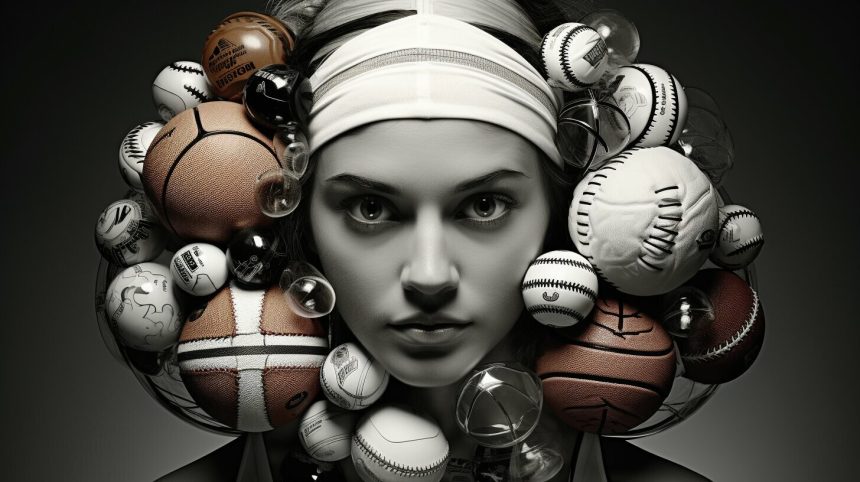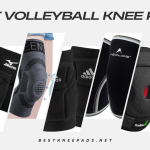When we think of sports, we often view them as a means of entertainment, competition, and physical activity. However, from a sociological perspective, sports can serve a much more significant purpose in society. Sports can act as a safety valve, a mechanism that allows individuals to release pent-up emotions and frustrations in a controlled and regulated setting. In this section, we will explore the concept of sports as a safety valve through the lens of various sociological perspectives.
Key Takeaways:
- Sports can be viewed as a safety valve from a sociological perspective.
- Sociological perspectives offer different viewpoints on the role of sports as a safety valve.
- The functionalist perspective sees sports as a means of releasing tension.
- The conflict perspective sees sports as a distraction from social and economic issues.
- The symbolic interactionist perspective highlights the social interactions and meanings created through sports.
- The feminist perspective considers the gender dynamics at play in sports as a safety valve.
The Functionalist Perspective
The functionalist perspective in sociology puts forward the view that sports serve as a safety valve. According to this theory, sports provide an outlet for individuals to release built-up tension and frustrations. By providing a controlled and regulated setting, sports allow people to channel their energy, preventing these feelings from causing social unrest or deviant behavior.
From a functionalist perspective, sports are an essential part of maintaining social stability and order. They are viewed as a necessary means of regulating social dynamics, keeping tensions in check, and preserving the existing social structure. Sports help to maintain a sense of social cohesion by providing a shared interest and common goal for individuals to work towards.
While some critics of the functionalist perspective argue that it oversimplifies the role of sports in society, others point out that it offers valuable insight into the positive functions that sports can serve. By providing an outlet for individuals to release negative energies, sports can help to promote overall mental and emotional wellbeing, reduce stress and anxiety, and foster a sense of community and social belonging.
The Conflict Perspective: Sports as a Distraction
The conflict perspective in sociology takes a different stance on sports as a safety valve. From this viewpoint, sports are seen as a distraction from the real issues and inequalities in society. Instead of providing true catharsis, sports divert people’s attention away from social, economic, and political problems, maintaining the status quo and preventing meaningful change.
According to conflict theorists, sports help to create a false sense of unity and solidarity among individuals, distracting them from the conflicts and divisions that exist within society. Sports events, such as the Olympics or the World Cup, reinforce nationalistic sentiment and divert attention away from international conflicts and inequality.
Moreover, the conflict perspective highlights the commercialization of sports and how it reinforces capitalism and status quo. The sports industry is dominated by wealthy owners and corporations, with athletes often being exploited and underpaid. Thus, while sports may provide temporary relief from everyday troubles, they cannot tackle the root causes of societal conflicts and inequality.
The Symbolic Interactionist Perspective
The symbolic interactionist perspective views sports as serving as a safety valve through the interaction and meaning-making processes that they facilitate. In this view, sports provide a platform for individuals to engage in social interactions, establish group identities, and create shared meanings. Through participation in sports, people can release tension and frustrations while also reinforcing social bonds and identity.
From this perspective, the meaning that individuals attach to sports is crucial. For example, a basketball game might hold different meanings for different individuals, depending on their experiences and cultural backgrounds. Some might view it as a chance to compete and win, while others might see it as a way to bond with their team or showcase their skills.
The symbolic interactionist perspective recognizes that sports are not just physical activities but also social and cultural practices. The way that individuals interpret and experience sports is shaped by factors such as their gender, race, class, and nationality. These factors influence not only how individuals interact with sports but also how sports are organized, represented, and mediated in society.
Furthermore, the symbolic interactionist perspective highlights the importance of language and communication in understanding sports as a safety valve. The names and labels that we attach to different sports, teams, and players carry symbolic meanings that shape our perceptions and attitudes towards them. For example, the term “football hooliganism” carries negative connotations that frame the behavior of some football fans as deviant and criminal. In contrast, the term “soccer mom” is associated with a positive image of a supportive and involved parent.
In conclusion, the symbolic interactionist perspective sheds light on the important role that sports play as a safety valve in society. By providing a platform for social interactions, identity formation, and meaning-making, sports can help individuals release tension and frustrations while also reinforcing social bonds and cultural practices.
The Feminist Perspective
The feminist perspective offers a unique and critical lens through which to view sports as a safety valve. Feminists argue that sports have been traditionally male-dominated and exclusionary towards women, perpetuating gender inequalities and societal norms. However, contemporary feminist perspectives also acknowledge that sports can provide a platform for women to challenge gender roles and expectations.
Some feminists argue that sports can serve as a means of empowerment for women, providing a space to challenge gender norms and assert agency. By participating in sports, women can gain confidence and a sense of self-worth, challenging traditional notions of femininity and power. Additionally, feminist scholars suggest that sports can provide a means for women to challenge sexist attitudes and practices in society at large.
On the other hand, other feminist scholars contend that sports can reinforce gender inequalities and existing power dynamics. Women’s sports are often overlooked and undervalued in comparison to men’s sports, leading to unequal funding and media coverage. Additionally, traditional gender roles and expectations persist in sports, limiting women’s opportunities and perpetuating inequality. Some feminist critics argue that the emphasis on physical appearance in women’s sports reinforces sexist and objectifying attitudes towards women.
Overall, the feminist perspective offers important insights into the gender dynamics at play in sports as a safety valve. While women’s participation in sports can offer opportunities for empowerment and challenging gender norms, it is also important to recognize and address the challenges and inequalities that persist.
Conclusion
In conclusion, examining sports as a safety valve from different sociological perspectives offers us a better understanding of their role in society. The functionalist perspective views sports as a means of releasing tension and frustration, while the conflict perspective sees them as a distraction from the real issues at hand. The symbolic interactionist perspective emphasizes the social interactions and meanings created through sports, and the feminist perspective highlights the gendered nature of sports and their potential to both empower and reinforce existing inequalities.
Overall, sports serve as a complex and multifaceted outlet for individuals and society as a whole. Understanding their role in society requires a nuanced approach that considers the various sociological perspectives and dynamics at play. By doing so, we gain insight into the ways in which sports can both reflect and shape society, and ultimately contribute to our understanding of human behavior and social interaction.










